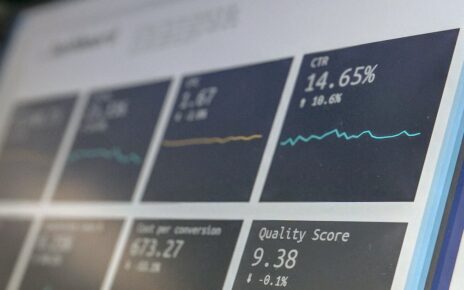Investing in Sustainable Agriculture: Opportunities in Ethical Food Production.
Investing in sustainable agriculture presents a unique opportunity to contribute to the growth of ethical food production while also generating financial returns. With the increasing global demand for environmentally friendly and socially responsible practices, sustainable agriculture has emerged as a promising sector for investors. This article explores the various opportunities available in ethical food production and highlights the benefits of investing in sustainable agriculture.
Investing in Sustainable Agriculture: Opportunities in Ethical Food Production
Investing in sustainable agriculture offers a wide range of opportunities for individuals and organizations looking to align their investments with environmentally conscious and socially responsible practices. By supporting ethical food production, investors can contribute to sustainable farming practices, reduce environmental impact, promote animal welfare, and foster community development.
1. Organic Farming: Cultivating with Nature
Organic farming is a key pillar of sustainable agriculture. It focuses on cultivating crops and raising livestock without the use of synthetic chemicals, genetically modified organisms (GMOs), or antibiotics. By investing in organic farming, individuals can support the production of healthier and more nutritious food while safeguarding the environment from harmful chemicals.
2. Agroforestry: The Synergy of Trees and Crops
Agroforestry integrates trees and shrubs into traditional agricultural practices, creating a diverse and resilient farming system. This approach provides multiple benefits, such as increased biodiversity, improved soil fertility, enhanced water retention, and carbon sequestration. Investing in agroforestry projects promotes sustainable land use and contributes to climate change mitigation.
3. Precision Agriculture: Technology for Efficiency
Precision agriculture leverages advanced technologies like remote sensing, GPS, and data analytics to optimize farming practices. By investing in precision agriculture, individuals can support the adoption of resource-efficient techniques, including targeted fertilization, precise irrigation, and integrated pest management. These technologies enhance crop productivity while minimizing input waste, making farming more sustainable and economically viable.
4. Aquaponics: A Harmonious Ecosystem
Aquaponics combines aquaculture (fish farming) with hydroponics (soilless plant cultivation) in a symbiotic system. Fish waste provides nutrients for the plants, while the plants filter the water for the fish. This closed-loop system minimizes water usage and eliminates the need for synthetic fertilizers. Investing in aquaponics ventures supports sustainable food production by promoting efficient resource utilization and reducing environmental impact.
5. Local Food Systems: Nurturing Community Resilience
Investing in local food systems strengthens community resilience and reduces reliance on distant food sources. Supporting local farmers’ markets, community-supported agriculture (CSA) programs, and farm-to-table initiatives promotes sustainable agriculture at a grassroots level. By investing in local food systems, individuals can contribute to food security, encourage sustainable farming practices, and foster social connections within communities.
6. Renewable Energy in Agriculture: Powering Sustainability
The integration of renewable energy sources in agriculture offers significant opportunities for sustainable development. Investing in solar panels, wind turbines, and biogas systems enables farmers to generate clean energy, reduce greenhouse gas emissions, and decrease dependence on fossil fuels. Renewable energy in agriculture supports the transition to a low-carbon economy while providing economic benefits to farmers and investors alike.
Investing in Sustainable Agriculture: Opportunities in Ethical Food Production?
Investing in sustainable agriculture provides a plethora of opportunities for individuals and organizations seeking to make a positive impact on the environment and society. By allocating resources to ethical food production, investors can actively contribute to the transition towards a more sustainable and resilient food system.


